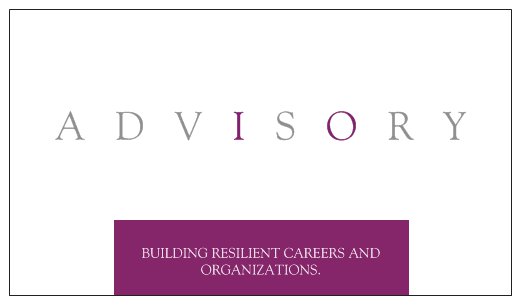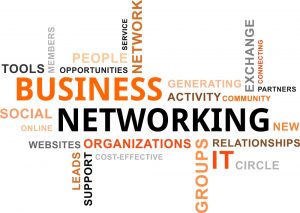 Since founding I/O Advisory Services, my mission has been to support the Building of Resilient Careers and Organizations. I consider resilience to be an essential ingredient for career development, and career management, and my HR services or it wouldn’t have such a prominent place on my business cards or on my website. It’s also why one of my favourite plants are ferns – they are super hardy and resilient, even without a lot of water or sunlight they seem to survive.
Since founding I/O Advisory Services, my mission has been to support the Building of Resilient Careers and Organizations. I consider resilience to be an essential ingredient for career development, and career management, and my HR services or it wouldn’t have such a prominent place on my business cards or on my website. It’s also why one of my favourite plants are ferns – they are super hardy and resilient, even without a lot of water or sunlight they seem to survive.
We all experience twists and turns, ups and downs, in our personal lives and our careers. From everyday challenges to more traumatic, impactful events, nobody gets through life unscathed. That’s why I talk so much about building resiliency, especially when it comes to your career. While resilience helps us “bounce back” from difficult challenges, it can also provide us with opportunities to grow.
 Being resilient doesn’t mean you won’t experience distress. Almost anyone who reaches their 30s or beyond has also likely experienced major emotional pain and stress. But difficult circumstances don’t have to determine the outcome of your life or career. Resilience helps you get through difficult circumstances and it also empowers you to grow and become a better version of yourself along the way.
Being resilient doesn’t mean you won’t experience distress. Almost anyone who reaches their 30s or beyond has also likely experienced major emotional pain and stress. But difficult circumstances don’t have to determine the outcome of your life or career. Resilience helps you get through difficult circumstances and it also empowers you to grow and become a better version of yourself along the way.
Like building any skill or productive habit, building resiliency takes time and deliberate intention. To help build your capacity for resilience, take a look at these strategies:
Impostor Syndrome — There’s nothing fake about how it makes you feel. Imposter Syndrome is a widely recognized problem that affects 60% – 70% of us at some point. It is even experienced by individuals who have had significant success. However, to help change your mindset and build resiliency, there are ways that you can cope when the Impostor Syndrome is having a negative impact on you. For people who are atypical within their role for one reason or another (e.g., they are a woman in STEM, have a disability, or they are Black, Indigenous, or person of colour in a typical North American organization) here are some additional things to keep in mind to conquer the Impostor Syndrome when you’re an outlier.
 The Power of a Growth Mindset — Why do some people succeed when others don’t, and what elements are within our control to help foster our success? People who believe in a fixed mindset believe their basic qualities, like their intelligence or talent, are fixed traits. Those who believe in a growth mindset believe that their most basic abilities can be developed through dedication and hard work—brains and talent are just the starting point. What do you think?
The Power of a Growth Mindset — Why do some people succeed when others don’t, and what elements are within our control to help foster our success? People who believe in a fixed mindset believe their basic qualities, like their intelligence or talent, are fixed traits. Those who believe in a growth mindset believe that their most basic abilities can be developed through dedication and hard work—brains and talent are just the starting point. What do you think?
Positivity is Your Best Action — As an HR Consultant, Executive Coach, Career Coach, and parent I try hard to make the best out of challenging situations. With that said, I agree that some things are hard to put a positive spin on. I don’t have a crystal ball to see how things will end up, but I do have experience in knowing that being despondent and negative isn’t the (long term) answer. Being positive or staying optimistic aren’t passive words to me. Rather, I have seen how times of disappointment and challenge can really be a signal to act and keep trying to make changes … however small.
Resilience and Careers – What’s the Big Deal? — Resilience is not a trait that people either have or do not have. It involves behaviours, thoughts, and actions that anyone can learn and develop. There are many aspects of resiliency when it comes to your career, which you can read about in this blog post.
Resilience – If You Don’t Think You Have It, You Can Get It — Thankfully, we don’t have a fixed amount of resilience; it’s something that we can learn and develop. “Resilience is like a muscle, it can be built-up” as noted by Psychology Professor Adam Grant and Facebook COO Sheryl Sandberg in their book Option B: Facing Adversity, Building Resistance and Finding Joy. Learn about the four things they say you can do to build resilience.
 Networking for Resilience — Networking isn’t about attending events and rushing around having conversations where you try to impress others by explaining what you do and why your product or service is the best. Instead, it’s about establishing genuine connections that you can follow up on and nurture over time into meaningful and mutually beneficial professional relationships. See more about how to network sincerely here.
Networking for Resilience — Networking isn’t about attending events and rushing around having conversations where you try to impress others by explaining what you do and why your product or service is the best. Instead, it’s about establishing genuine connections that you can follow up on and nurture over time into meaningful and mutually beneficial professional relationships. See more about how to network sincerely here.
If you’re contemplating any work-related changes or improvements, I invite you to reach out today for a free and confidential initial phone consultation by phone, email, or via direct message on Twitter, Facebook or LinkedIn.
More than career coaching, it’s career psychology®.
I/O Advisory Services – Building Resilient Careers and Organizations.™



